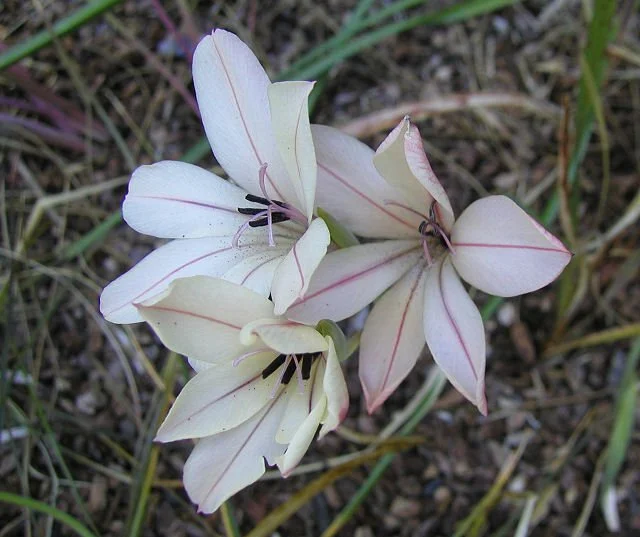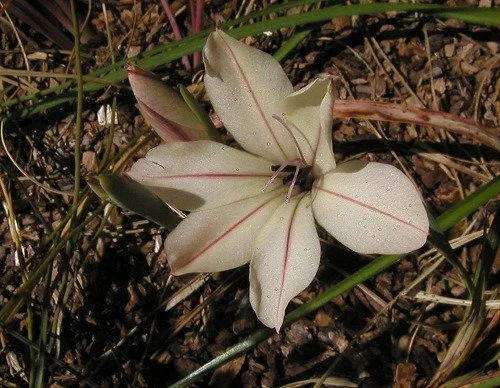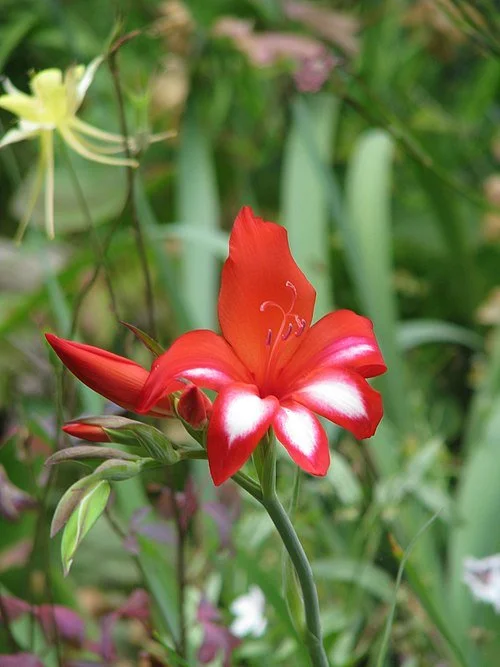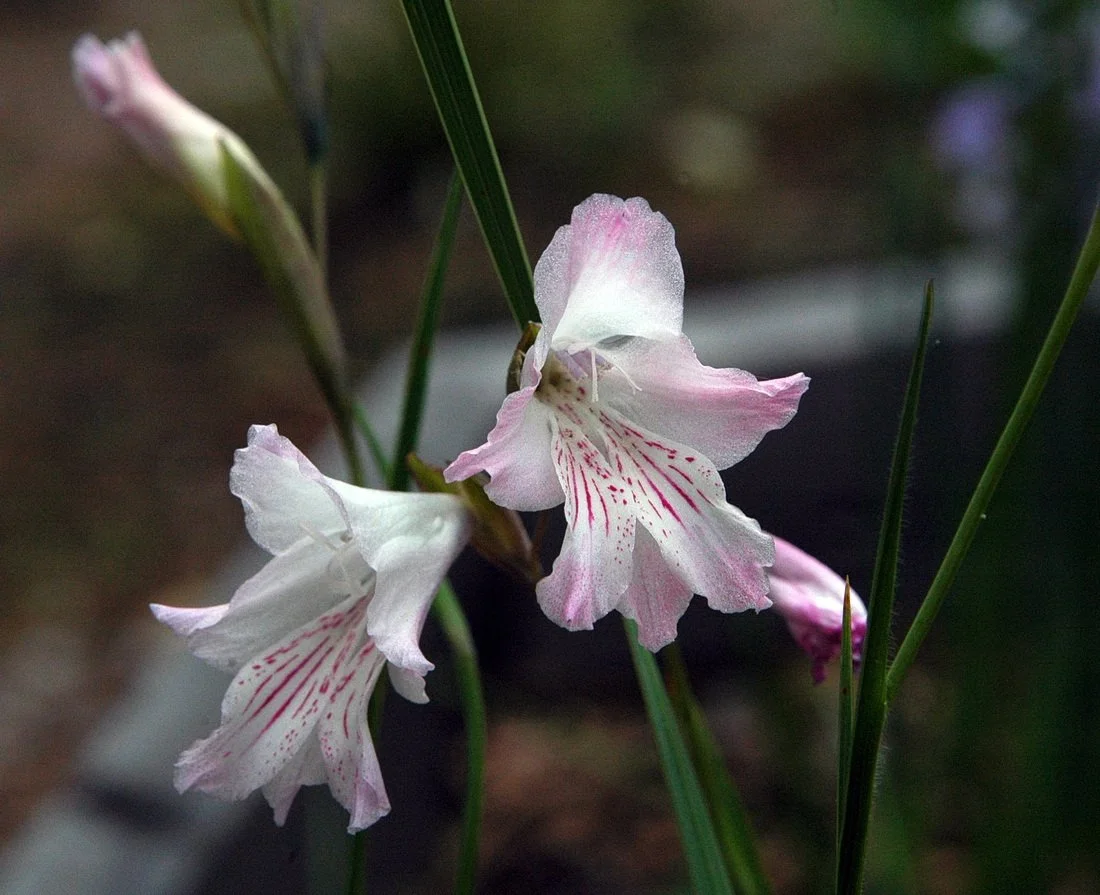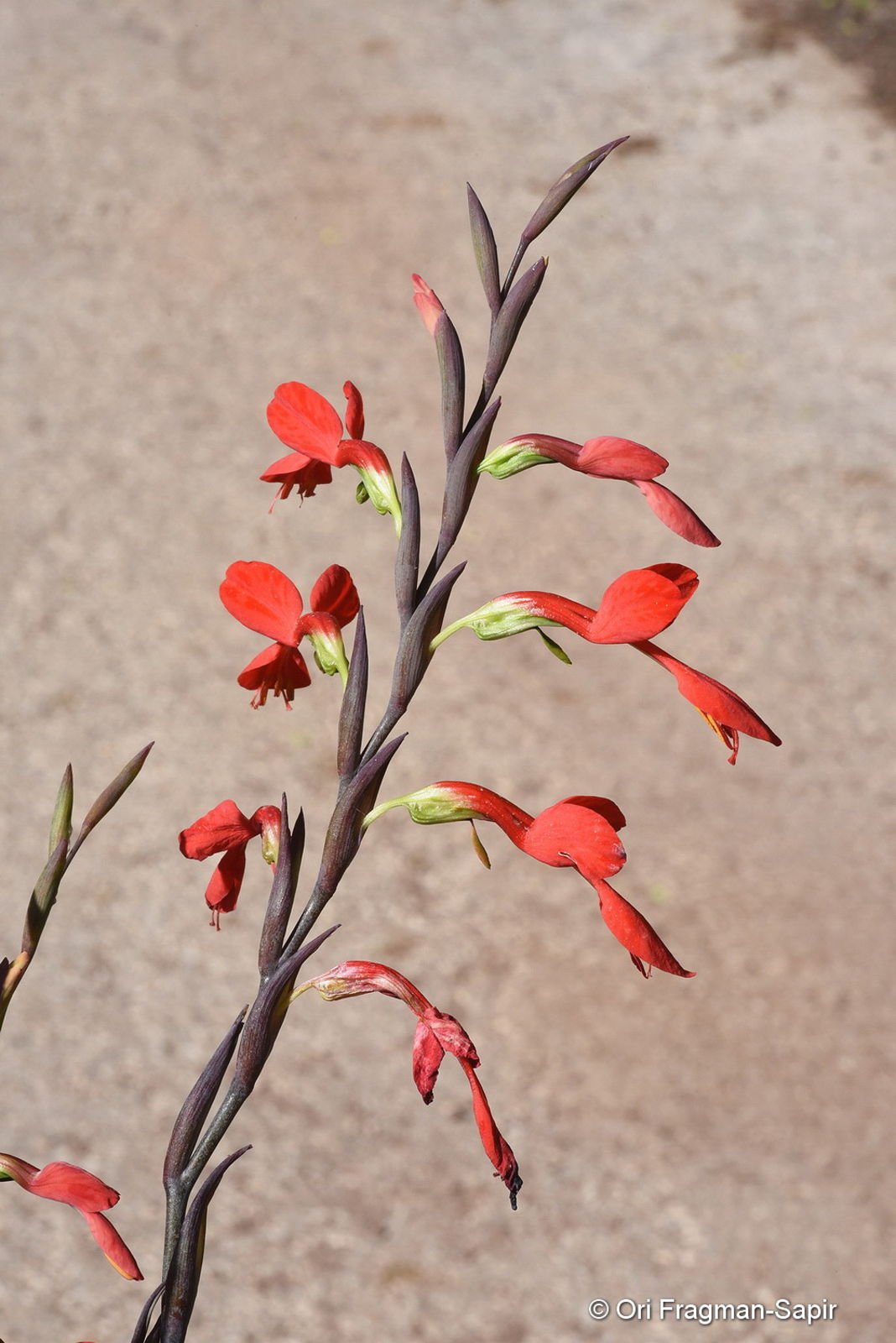
Gladiolus imbricatus
Aka the Turkish Marsh Gladiolus, not to be confused with the epic Mozart piano sonata, Turkish March aka Rondo Alla Turka.
A graceful and uncommon wild gladiolus, Gladiolus imbricatus is native to damp meadows, forest margins, and open woodlands across Central and Eastern Europe into Western Asia. This species bears elegant spikes of magenta to rich pink-purple flowers in early to mid-summer, rising on slender stems from grassy foliage. It is an important component of traditional hay meadow flora in parts of its native range.
Cultivation is straightforward in moderately moist, well-drained soils with full sun to light shade. It performs especially well in borders, naturalistic plantings, and meadow-style gardens where it can be left undisturbed to establish and multiply. Unlike many showy hybrid gladioli, G. imbricatus has a refined, naturalistic charm and blends beautifully with grasses and other early summer bloomers.
Hardy to USDA zones 5–8, it appreciates consistent moisture during the growing season but benefits from drier conditions during dormancy. This species is also suitable for rock gardens with adequate moisture retention or heavier soils that don’t become waterlogged in winter. A delightful and less commonly seen species for the discerning gardener.
Aka the Turkish Marsh Gladiolus, not to be confused with the epic Mozart piano sonata, Turkish March aka Rondo Alla Turka.
A graceful and uncommon wild gladiolus, Gladiolus imbricatus is native to damp meadows, forest margins, and open woodlands across Central and Eastern Europe into Western Asia. This species bears elegant spikes of magenta to rich pink-purple flowers in early to mid-summer, rising on slender stems from grassy foliage. It is an important component of traditional hay meadow flora in parts of its native range.
Cultivation is straightforward in moderately moist, well-drained soils with full sun to light shade. It performs especially well in borders, naturalistic plantings, and meadow-style gardens where it can be left undisturbed to establish and multiply. Unlike many showy hybrid gladioli, G. imbricatus has a refined, naturalistic charm and blends beautifully with grasses and other early summer bloomers.
Hardy to USDA zones 5–8, it appreciates consistent moisture during the growing season but benefits from drier conditions during dormancy. This species is also suitable for rock gardens with adequate moisture retention or heavier soils that don’t become waterlogged in winter. A delightful and less commonly seen species for the discerning gardener.



